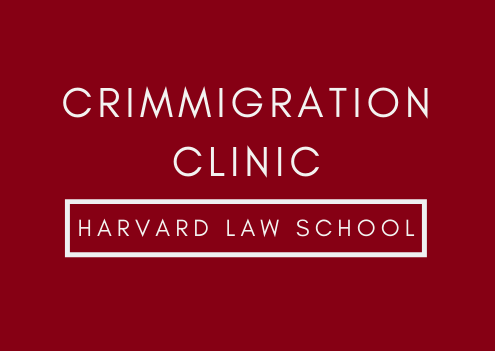Via HIRCP Blog
Over the past few years, the Crimmigration Clinic at our Program has greatly expanded, and more and more students have been able to learn about the intersection of criminal law and immigration law. Clinical students from the Class of 2022 have been passionate advocates, assisting with case work, litigation efforts, and policy advocacy.
Students came to the Crimmigration Clinic eager to learn and ready to take on new challenges. “It was really exciting to work in complicated areas of law that are still developing,” said Matthew Goldkin ‘22, who worked on a motion to stop the removal of a clinic client from the US. “For many of our arguments, there was no case directly on point. I was stretched to think more creatively and apply legal concepts from slightly adjacent contexts.”
As clinical students took on projects in this complex area of law, they depended on the support and ingenuity of their fellow students and instructors. Dan Brown ‘22 worked on an opening brief that challenged a Board of Immigration Appeals decision that severely limited the ability of states to retroactively modify their criminal sentencing law to mitigate immigration consequences. As he worked to break down complex topics into clear, concise text, he was grateful for the support from the rest of his team. “It was extremely rewarding to be able to have in-depth discussions about legal theory and our case strategy and to watch our brief take shape based on those conversations,” said Dan.
In addition to learning new skills, students also noted that their work laid bare the injustices of both the criminal and immigration systems. “At times, trying to help someone reclaim their dignity or speak their truth felt like an impossible battle to fight when operating within the draconian constraints of these two systems and fighting against the explicit and implicit biases of the repeat players that ran them,” reflected Bernice Kwan ‘22.
Systemic oppression is stark in both the criminal and immigration systems. Austin Nielsen-Reagan ’22 was assigned to a project concerning the nefarious Boston gang database. Austin completed legal and factual research, helped draft a complaint, and worked with local community stake holders. He noted that this work starkly displayed to him “the disturbing extent to which our criminal and immigration legal systems are intertwined, and the racialized systemic injustices that result from that intertwining.”
Their work in the Crimmigration Clinic was challenging, both intellectually and emotionally, yet participants from the Class of 2022 remained dedicated to doing all they could to assist their clients and further advocacy efforts. Austin said his time at the Crimmigration Clinic pushed him to reaffirm his commitment to advocate for change in these unjust systems. He encouraged future clinical students to take up this challenging work, stating: “It’s a way to remind yourself of the reasons you came to law school in the first place, while also making a positive impact in real people’s lives.”
Bernice also hopes that other law students will join the clinic despite the complexity of crimmigration law. She recommended that prospective clinical students seek out support from their community and to “remember the victories—no matter how small, even if they are outnumbered by the losses, and even if all you did today was forge a meaningful connection with another human being.”
For Bernice, the victory she will cherish will be when her supervisor, Cindy Zapata, sent her message letting her know that her client from the Crimmigration Clinic had been released from detention. Her client’s lawyer in Georgia sent them a picture of her client once she was finally outside of the detention center; Bernice described her as “beaming and radiant with joy.” While Bernice acknowledged that victories can be scarce in crimmigration, she said, “memories like the one shared with my client that morning in March 2021 drive me to keep searching for those moments of shared joy that make this work worth it.”
On behalf of the staff at the Crimmigration Clinic, as well as at the larger Harvard Immigration and Refugee Clinical Program, we would like to thank all the HLS Class of 2022 clinical students who participated in the Crimmigration Clinic. We hope that all our graduating students will remain hopeful and determined in the face of adversity and that they continue to fight for justice for all those at the intersection of criminal law and immigration law.
Filed in: Clinical Voices
Contact Office of Clinical and Pro Bono Programs
Website:
hls.harvard.edu/clinics
Email:
clinical@law.harvard.edu
